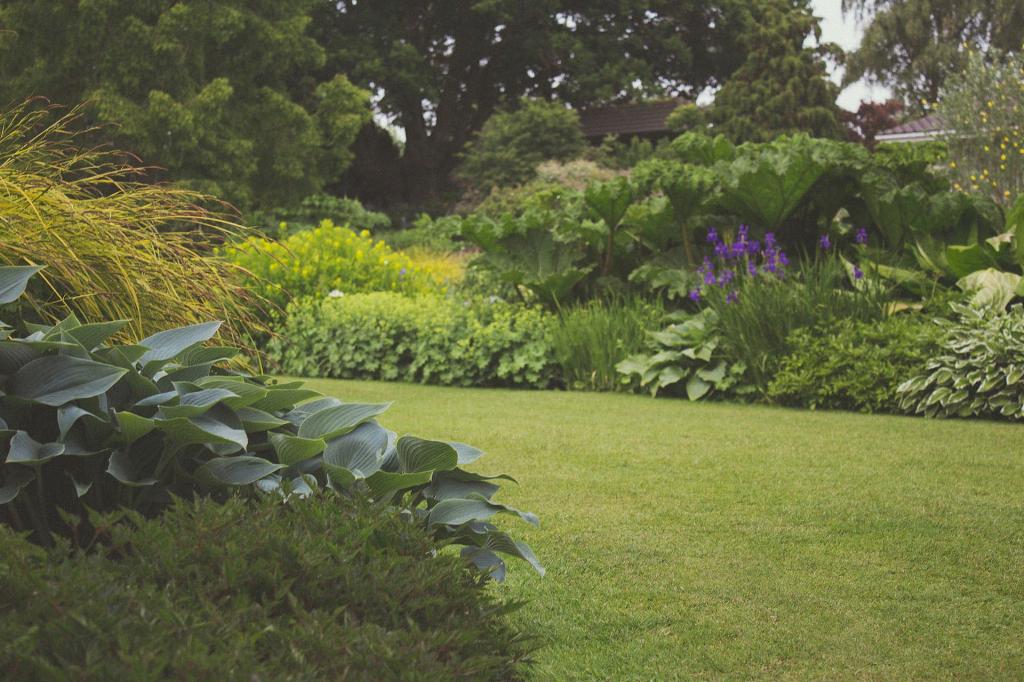If you’re dealing with grubs wreaking havoc on your lawn, fret not – there are effective methods to combat these pesky pests and restore the health of your grass. Let’s explore some practical strategies to help you get your lawn back in shape.
1. Castor Oil Granules: A Natural Solution
One efficient way to tackle grubs is by spreading castor oil granules across your lawn. These granules work by deterring grubs from feeding on the roots of your grass, ultimately reducing their population and minimizing damage to your lawn.
2. Neem Oil for Beetle Control
To prevent beetles from laying eggs and producing more grubs in your lawn, consider applying neem oil to your garden plants. Neem oil serves as a natural insect repellent, disrupting the beetles’ reproductive cycle and helping to curb the grub population.
3. Beneficial Nematodes: Nature’s Pest Control
Another eco-friendly approach to eliminating grubs involves using beneficial nematodes. These microscopic organisms target and feed on grubs, effectively reducing their numbers in your lawn without posing harm to other beneficial insects or plants.
4. Milky Spore Powder for Long-Term Grub Control
For a long-term solution to grub infestations, consider incorporating milky spore powder into your lawn care routine. This organic powder contains spores that infect and kill grubs, providing lasting protection against future grub damage.
5. Proper Lawn Care Practices
Maintaining a healthy lawn through proper care practices can also help deter grubs. Regular mowing, adequate watering, and proper fertilization promote strong grass roots, making your lawn less appealing to grub larvae.
6. Over-Seeding to Repair Grub-Damaged Areas
If your lawn has already suffered damage from grub feeding, consider over-seeding to restore the affected areas. By introducing new grass seed, you can revitalize your lawn’s appearance and fill in bare patches left behind by grubs.
7. Effective Timing of Grub Treatments
When applying grub control products or treatments, timing is crucial. Optimal times for addressing grubs typically coincide with their active feeding periods, ensuring maximum efficacy in reducing their numbers and protecting your lawn.
8. Monitoring Grub Activity in Your Lawn
Regularly inspecting your lawn for signs of grub damage, such as wilting grass or brown patches, allows you to detect infestations early on. By staying vigilant and proactive, you can address grub problems promptly and prevent extensive damage.
9. Utilizing Chemical Control Options with Caution
While chemical pesticides can be effective in combating grubs, it’s essential to use them judiciously and follow instructions carefully. Consider less toxic alternatives first and reserve chemical treatments as a last resort for severe infestations.
10. Consulting with Lawn Care Professionals
If you’re unsure how to best deal with grub issues in your lawn, don’t hesitate to seek advice from lawn care professionals. They can assess the extent of the infestation and recommend tailored solutions to effectively eliminate grubs and restore your lawn’s health.
11. Sustainable and Eco-Friendly Approaches
Embracing sustainable and eco-friendly practices in your lawn care routine can help prevent future grub problems while promoting a healthier ecosystem overall. By prioritizing natural solutions and environmentally conscious methods, you can maintain a beautiful and resilient lawn.
12. Taking Action to Protect Your Lawn
By implementing a combination of natural remedies, strategic lawn care practices, and informed decision-making, you can effectively combat grubs and safeguard the health and vibrancy of your lawn. Remember that proactive steps and consistent maintenance are key to successfully managing grub infestations and enjoying a lush, grub-free lawn.

